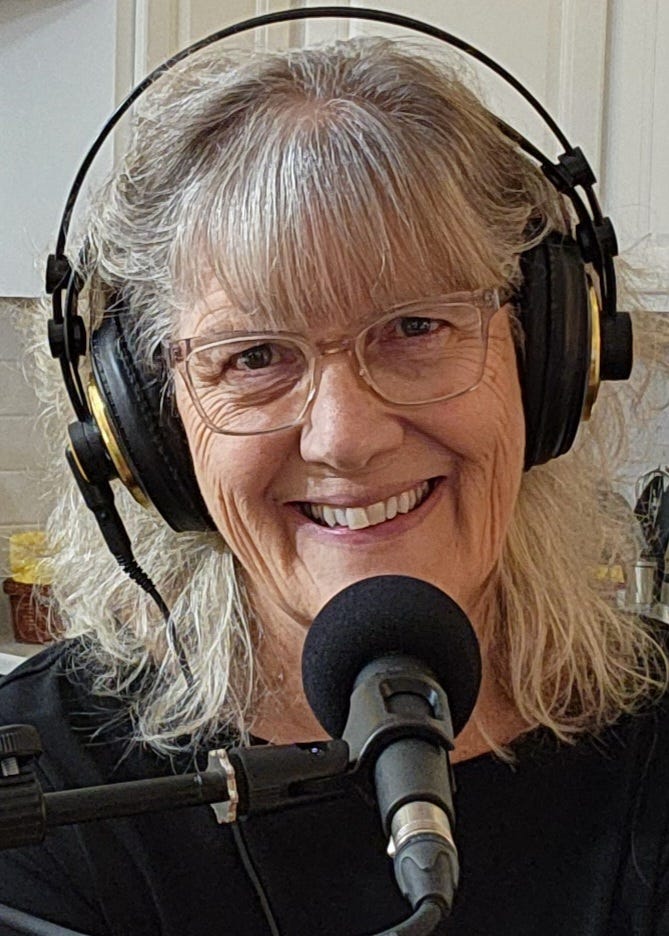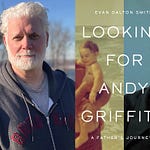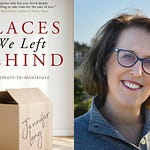In this episode, I talk with author, musician and audio producer Chérie Newman about her humorous experiences pet-sitting unruly critters during the pandemic. The need to turn this one-time side hustle into a fulltime gig coincided with a more sobering reality: the way that wealthy out-of-state residents reshaped her hometown of Bozeman, Montana.
Newman merges both stories into her debut memoir, Other People’s Pets: Critters, Careers, and Capitalism in Yellowstone Country. We also discuss her highly focused approach to writing, which helped her complete a first draft of her memoir in 83 days. And we delve into her decision to pursue an unconventional publishing route, one that allowed her to retain control and profits, and permitted her to get her book out quickly.
Chérie Newman is a former producer and and on-air host for Montana Public Radio, and a freelance writer. She founded a weekly literary program, The Write Question, which is still broadcast on several public radio stations, and her articles and essays have appeared in many publications. She is the owner of Magpie Audio Productions, and produces The Book I Had to Write podcast.
Some of my biggest takeaways:
Chérie was compelled to write Other People's Pets less as a typical “feel good” story and more to explore the humorous challenges of corraling disobedient pets—and her own deep connection to animals.
In this interview, Newman describes how she set about writing her memoir after frequently hearing from friends that she ought to record her stories. But while the unexpected challenges she faced pet-sitting unruly dogs made for humorous stories, the reality of her job sometimes left her unmoored. "I came away from this year of intense pet sitting with a little bit of PTSD," she says.
The pandemic brought about immediate and dramatic changes to Bozeman, Montana as real estate prices soared and community dynamics shifted.
Newman's memoir addresses some of the significant societal shifts she saw in her home city of Bozeman, Montana during the pandemic. And our interview highlights rapid socioeconomic changes, with real estate prices doubling and the influx of people seeking “the last best place,” as writer William Kittredge dubbed Montana.
One of the drivers of this influx was no doubt a glorified depiction of Montana in shows like Yellowstone, which don’t have a lot of basis in reality, at least as Newman sees it. She juxtaposes media depictions of Montana with some of starker realities for long-term residents.
People were moving here so fast that there was no place for anybody to live. We started getting, for the first time, rows and rows of RVs parked on streets that were near places that were going to be subdivisions but weren't yet. And it was just insanity.
This phenomenon, fueled by the pandemic, led to a bifurcation of the local community where “there's a lot of animosity between people who've lived here for a long time and people who've moved in.”
Newman set an ambitious and structured writing goal, completing the first draft of her book in less than her goal of 90 days…
While Other People’s Pets isn’t Newman’s first attempt at a book, it’s one she was able to draft in record speed, thanks in part to her discipline of setting a writing schedule of (at least) 90 minutes a day for 90 days, and the transformational journey of taking that manuscript through numerous drafts.
And so there were some times when it would be 7.30 at night and I still hadn't done my 90 minutes, but because I had this little chart on the wall and I was making, I was ticking off….I committed to those 90 days, and I committed to those 90 minutes, and I wasn't gonna let bad self-confidence defeat me.
…But the book really came together in revisions.
In this interview we also discuss the ways Newman’s approach mimicked but also diverged from strategies such as one recommended by Allison K. Williams in her book Seven Drafts: Self-Edit Like a Pro from Blank Page to Book.
I did pay attention to [Williams’s] Seven Drafts but I just also went way beyond seven drafts because every time I went through it I found a way to make it better and I found a way to make it more succinct and I found a way to say what I wanted to say in a richer, deeper, clearer way.
Choosing the Path Less Traveled in Publishing
The publishing journey that Newman chose reflects a rising trend among authors seeking greater autonomy. She discusses the importance of time, quality control, and financial considerations in her decision to forgo the search for an agent and large publishing deal.
In her case, Newman chose a publisher that served as both a curator and distributor, enabling her to maintain control over the final product and gain a more significant portion of profits from sales.
In many ways, Newman’s approach is also indicative of the changing relationship to hybrid and self-publishing, as authors now feel more empowered to make decisions that align their financial goals with their visions for their work.
"I decided I didn't want to... wait two years to have my book published and getting none of thse [returns],” she says.
Discussed on this show
Other People’s Pet: Critters, Careers, and Capitalism in Yellowstone Country Bookshop.org | Barnes & Noble | Amazon
Magpie Studio Productions, specializing in storytelling and podcast production
“Economic Disparity in the Treasure State,” blog post about economic realities in Montana
“How to Write a Book” blog post about publishing Other People’s Pets
Listen to my episode with editor Allison K. Williams, author of Seven Drafts
Did you enjoy today’s episode?
Please consider leaving a review on Apple Podcasts. Reviews really help the show get discovered by new listeners!















Share this post